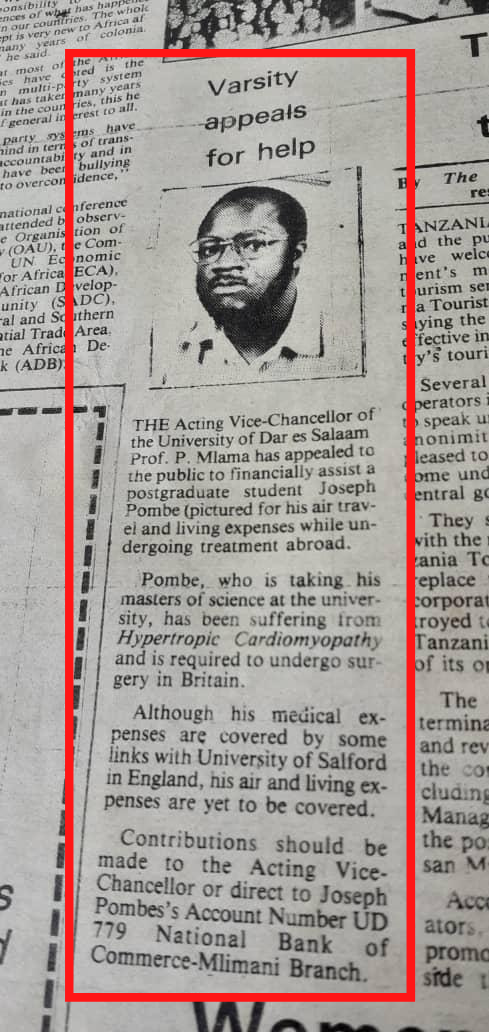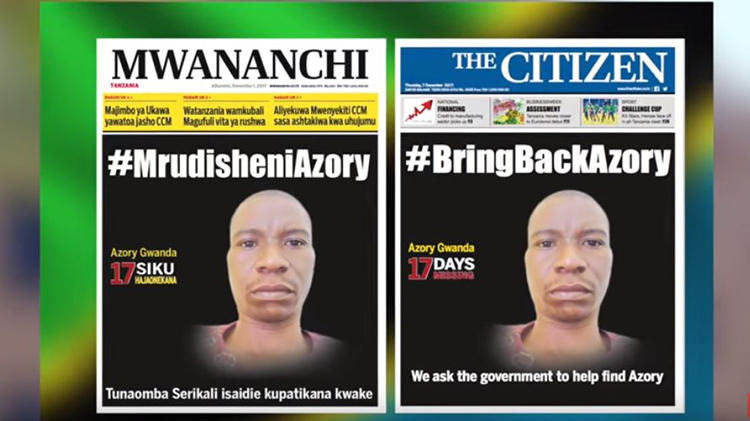
At around 10:15 pm on 17 March 2021, a well-connected friend called to deliver somber news; John Pombe Magufuli, a distinctively pious, but feared President of Tanzania had passed away, and that the Vice President, Samia Suluhu Hassan, was about to address the nation. The call, and the then Vice President’s confirmation that night ended three weeks of confusion, and endless speculations over the President’s health. His death was, officially, attributed to a long struggle with heart complications, but rumors that COVID-19 had exacerbated the problem have refused to go away.

To keen observers, the President’s brief, but conspicuous disappearance from the public, and the subsequent announcement of his death, raised many questions. The most important, and which remains unanswered, is whether his death could have been prevented, either by the actions of his doctors, or the entire machinery charged with protecting a serving leader.
Magufuli was an unconventional, highly divisive, and strong-willed head of state. His death was significant in that it marked the first time a union government – the United Republic of Tanzania constituting ‘Tanganyika’ and Zanzibar – had lost a sitting President. For this reason, it warrants a special multi-agency public investigation, but none has materialized, and there is no indication that any will be commissioned.
The irony is that, even those – mostly ruling party politicians – that appeared to believe Magufuli was God-sent, and thus irreplaceable, did not bother to demand for a thorough account of his death. It could be that, like a section of opposition politicians, they viewed the death as a blessing in disguise. A leader so enigmatic that only nature could (and had to) take care of!
A smooth transition?
Not much is known about the actual, behind-the-scenes dynamics underpinning the transfer of power to Magufuli’s Vice President – Samia Suluhu Hassan. The swearing in, two days after she announced her predecessor’s death has generally been described as a sign of successful transition. Nevertheless, the decision of the Chief of Defense Forces – General Venance Mabeyo – to publicly reaffirm his allegiance to the new President, while attending the funeral of the late President in Chato, hinted at a possibility that security agencies were at least aware of a latent resistance.
📍Chato
“Rais (Samia) binafsi Hayati Magufuli alinidokeza, lakini ninaomba nisilitoe dokezo hilo nitakuomba nikuone ofisini”- Venance Mabeyo, Mkuu wa Majeshi ya Ulinzi na Usalama pic.twitter.com/hsyLR9Qx9f
— Haki Ngowi (@Hakingowi) March 26, 2021
Besides, President Samia’s urgency in replacing a Chief Secretary – Dr. Bashiru Ally – less than two weeks after assuming power pointed to an unprecedented lack of confidence in an official who was central to the transfer of power. In my view, the circumstances surrounding the death and transition merit a through public inquiry, but there seems to be no appetite for it.
What a legacy!
President Magufuli’s reign was so apocalyptic, and his death so enigmatic and sudden, to the extent that the nation hasn’t been able to make sense of what exactly happened. When will we see books, well-researched articles, drama, poems, and even balanced symposiums on his (actual) legacy? A year after his death? Or many years later when his ghost no longer determines political alliances, allegiances, and positioning? How can a chapter so dramatic and peculiar in a nation’s history be allowed to close so easily?

As we have seen with other epochal events – world wars, civil wars, developmental experiments, and political dictatorships – it takes more than a generation (often multiple) for people to make sense of these historic junctures. This has been the case, not only because of the complex nature of such events, but also due to the contexts in which they take place. In political systems where ‘primordial’ or leftist ideas dominate, secrecy thrives – and is normally seen as a source of strategic advantage.
Secrecy makes it difficult, and sometimes impossible, to learn the truth, particularly when records are inaccessible, altered, or destroyed, and witnesses are unable (because of any reason) to speak. There is a real danger that we may not be able to fully understand the implications of Magufuli’s contentious tenure, in part because of restrictive (including official secrecy) laws, limited scholarship, a struggling media, and a not so vibrant literary environment.
President Magufuli wanted the history subject revisited, and its study to be made compulsory for all secondary school students. There are indications that his successor has decided to put the initiative on hold (for now, or even forever). The Tanzania Institute for Education (TIE), a public agency that is responsible for curriculum design and development, has recently dismissed concerns that the revision that the late President ordered was driven more by the desire to facilitate his glorification, than a genuine intellectual imperative. Either way, Magufuli knew history was too important to be left to historians and attempted to re-write it. Will we ever be able to write his (true history)?

When I think about President Magufuli’s legacy, I think about his historic investments in major infrastructure, and the boldness with which he approached foreign relations. However, I also think about Azory Gwanda, Ben Saanane, and possibly many other unknown individuals whose names, and fate, we will never know. His administration denied us, and their families, a chance to know what really happened to them. We need to be kind enough to inquire about his fate, and then attach a similar level of importance to all other unresolved cases.
Could someone please tell us what really happened to our dear President?
Nicely written piece that represents the sentiments of quite a few people!! Bravo, Dastan!!
Maybe it is the case of letting the sleeping dogs lie…
This is a brilliantly written, unapologetic piece. Kudos Dastan!!
Well-crafted piece! Sentimental!
I believe our secrecy serves did play some parts in taking him down
I also believe that his notion of not accepting the presence of corona virus and the need of corona vaccines angered the international world powers ( deep states) , because one of their principles is that there shall be no cancer individual on earth for this and much more reasons magufuri had to be sacrificed
Like everything he did in other spheres of public life as our president, John Pombe Magufuli was dangerously and publicly reckless in his approach to COVID 19.
He refused or neglected to take even the most basic measures to protect himself from the virus even as his closest aides were felled by the disease.
And then the chickens came to his own home to roost. I was first told COVID had caught up with him on 4 March. I tweeted about it three days later, having obtained further information from other sources.
Between 7and 17 March, I tweeted almost daily, sharing the information as I got it. That includes the fact that he may have died a week earlier than the 17 March announced by President Samia. My information, which I duly tweeted, is that he died on 10 March.
The official cause of death, heart disease, is something that needs to be taken with some skepticism as well. It never was made public by anybody at any period of his political life, even as his partisans made political hay about Edward Lowassa’s visibly poor health during the 2015 general elections.
As in life, Magufuli died a controversial death. And while it’ll be sometime before we know everything we need to know about his life and death and its toxic legacy, my belief is we’ll know for sure. Truth always comes out in the end.
The Romans had already said it in their now-dead (?) language, Latin: “Sicut transit gloria mundi!”, i.e. “Thus passes away the glory of the world”!